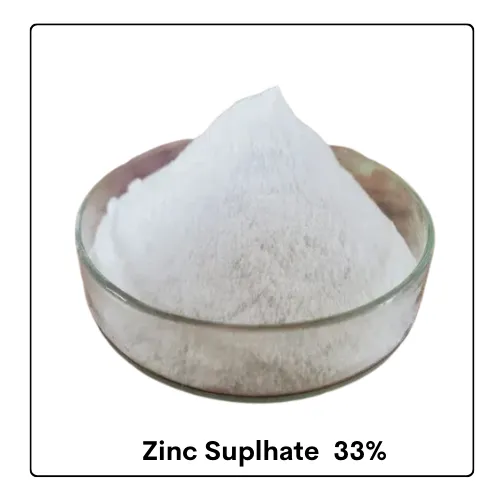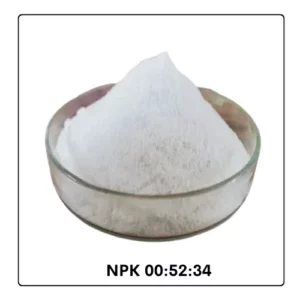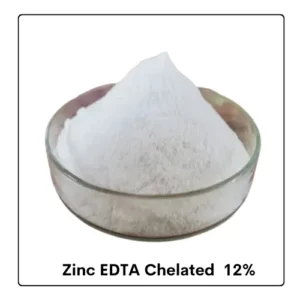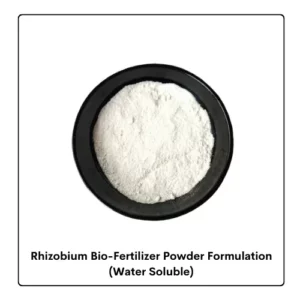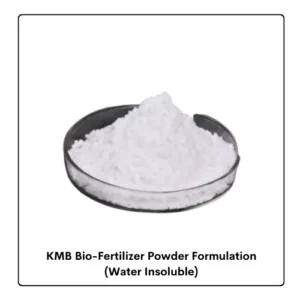Zinc Sulphate: 33%
Description
Zinc Sulphate: 33% is essential in agriculture for its role in addressing zinc deficiencies in plants. It effectively delivers zinc, a critical micronutrient, to enhance crop growth, yield, and quality. Its straightforward application and cost-effectiveness make it a practical choice for promoting healthier and more productive crops, contributing to sustainable agriculture practices.
जिंक सल्फेट: पौधों में जिंक की कमी को दूर करने में अपनी भूमिका के लिए कृषि में 33% आवश्यक है। यह फसल की वृद्धि, उपज और गुणवत्ता को बढ़ाने के लिए एक महत्वपूर्ण सूक्ष्म पोषक तत्व जिंक को प्रभावी ढंग से प्रदान करता है। इसका सीधा अनुप्रयोग और लागत-प्रभावशीलता इसे स्वस्थ और अधिक उत्पादक फसलों को बढ़ावा देने, टिकाऊ कृषि प्रथाओं में योगदान देने के लिए एक व्यावहारिक विकल्प बनाती है।
MECHANISM OF ACTION
- Direct Uptake: Zinc sulfate is water-soluble, allowing plants to directly absorb zinc through their roots.
- Ion Exchange: Once in the soil, zinc sulfate dissociates into zinc ions (Zn2+), which can be readily taken up by plant roots.
- Root Absorption: Plants absorb zinc ions through their roots, particularly in regions of active nutrient uptake.
- Enzyme Activation: Zinc serves as a cofactor for various enzymes involved in essential plant processes such as photosynthesis, DNA synthesis, and hormone regulation.
- Deficiency Correction: Zinc sulfate is used to correct zinc deficiencies in plants, preventing symptoms like stunted growth, leaf discoloration, and reduced yields.
- pH Adjustment: In some cases, zinc sulfate can lower soil pH, making zinc more available to plants in alkaline soils.
- Enhanced Pollination: Adequate zinc levels can improve flower development and pollen formation, potentially leading to increased pollination and fruit set.
DOSE OF Zinc Sulphate
- 250gm in 200-litre & spray on the surface of leaves in one acre. 2 to 3 sprays at an interval of 20 days.
BENEFITS OF Zinc Sulphate
- Effective Zinc Delivery: Provides a direct source of zinc for plants.
- Deficiency Correction: Addresses and prevents zinc deficiencies in crops.
- Enzyme Activation: Supports critical enzymatic processes for plant vitality.
- Stress Resistance: Helps plants withstand adverse environmental conditions.
- Improved Pollination: Enhances flower development and potentially increases pollination and fruit set.
- Cost-Effective: An economical way to boost zinc levels in soils and plants.
CROPS
- Corn, Soybeans, Wheat, Rice, Barley, Citrus Fruits (e.g., oranges, lemons), Apples, Grapes (for winemaking), Potatoes, Tomatoes, Carrots, Lettuce, Spinach, Cabbage, Broccoli, Cotton, Peanuts, Sunflowers, Canola, Sugarcane
Products May You Also Like:
Related products
-
Fertilizer
Rhizobium Bio-Fertilizer Powder Formulation (Water Soluble)
Rated 0 out of 5₹0.00 Add to cart -
Fertilizer
KMB Bio-Fertilizer Powder Formulation (Water Insoluble)
Rated 0 out of 5₹0.00 Add to cart
